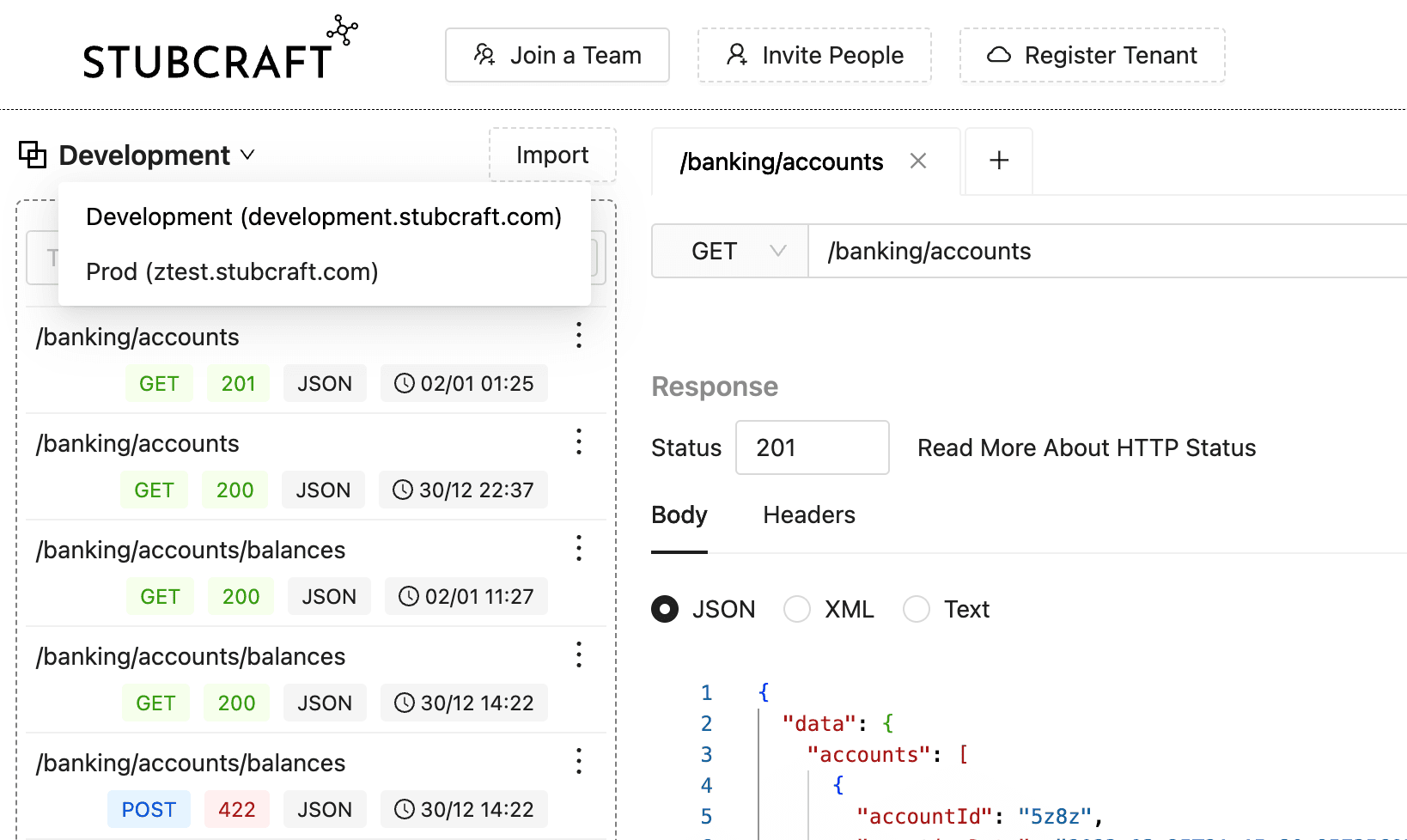
First release v0.0.1
I'm super excited to announce the first release of StubCraft. It allows developers to create dummy objects or procedures to simulate the behaviors of real objects. This aids in isolating the system under test and provides predictable outcomes for more efficient and reliable testing. With StubCraft, you can streamline your testing process and ensure your software performs as expected under various scenarios. Here are some common scenarios which people use mock APIs:
Early Development
Developers may use mock APIs in the early stages of development when the actual APIs are not yet available. This allows them to continue building and testing their applications without waiting for the final API versions.
Parallel Development
In scenarios where backend and frontend development occur in parallel, using mock APIs enables frontend developers to work on the user interface and logic independently of the backend development. This helps in saving time and making the development process more efficient.
Testing
Mock APIs are useful for testing purposes, especially when testing different scenarios or error conditions. Developers can simulate various responses and states of the API to ensure that their applications handle them correctly.
Isolation of Components
Mock APIs allow developers to isolate different components of a system. For instance, frontend developers can use mock APIs to test the frontend components without relying on the actual backend services.
Cost and Resource Savings
In cases where using real APIs might incur costs (e.g., API usage fees, data transfer costs), using mock APIs during development and testing can help save resources and reduce expenses.
Unstable or Unreliable APIs
If the actual APIs are unstable, unreliable, or frequently changing, developers may opt to use mock APIs for a more consistent and predictable development environment.
Simulating Different Scenarios
Developers can use mock APIs to simulate various scenarios that may be challenging to reproduce with real APIs, such as network failures, slow response times, or specific error conditions.
Prototype Development
When creating prototypes or proof-of-concept projects, developers often use mock APIs to quickly demonstrate the functionality and behavior of an application without having to implement fully functional backend services.
Educational Purposes
In educational settings, mock APIs can be valuable for teaching purposes. They allow students to practice working with APIs in a controlled environment without requiring access to real external services.
Security Concerns
In some cases, using real APIs during development might pose security risks, especially when dealing with sensitive data. Mock APIs can be used to mitigate these risks during the development and testing phases.
Overall, the use of mock APIs provides flexibility and control during the development process, helping developers overcome challenges and streamline their workflows.